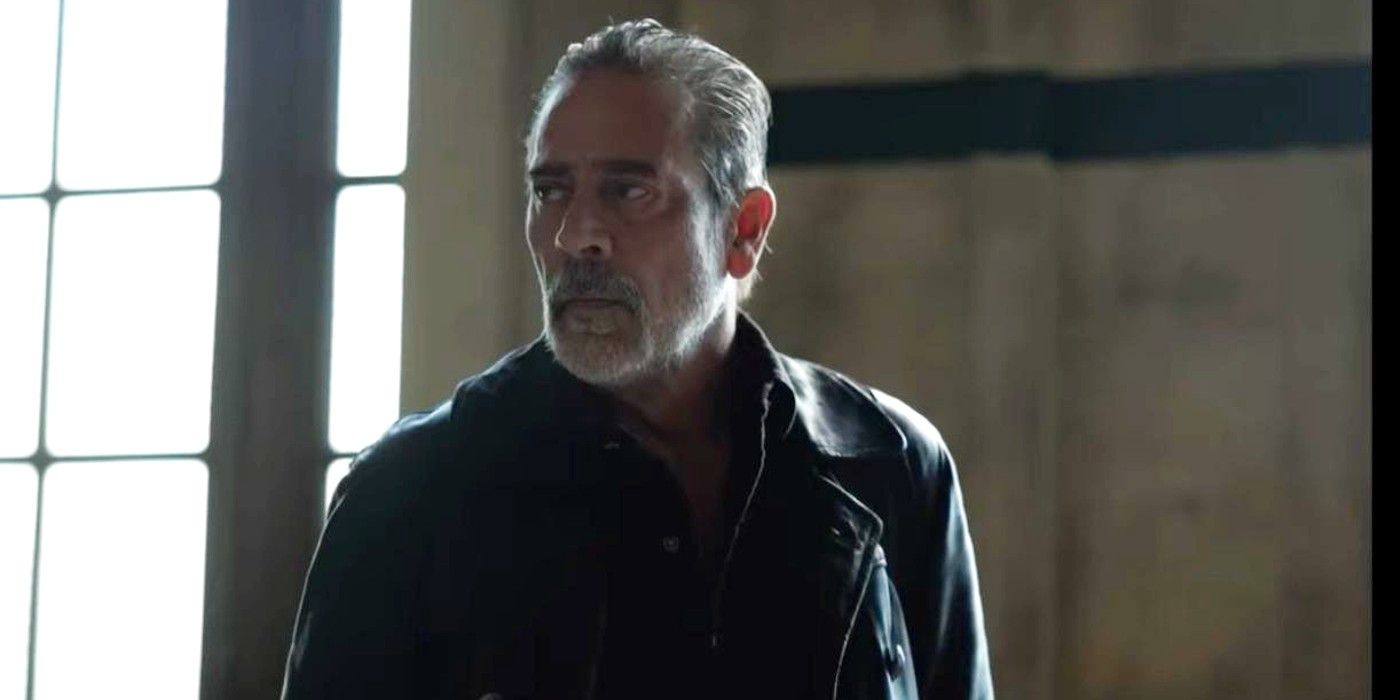Warning: spoilers ahead for The Walking Dead: Daryl Dixon season 2, episode 5.

Picking the zombie apocalypse's best villain-to-hero turnaround is no longer an easy choice after The Walking Dead: Daryl Dixon season 2. Jeffrey Dean Morgan's Negan has experienced the most dramatic shift of any character across all The Walking Dead TV shows released during the past 14 years. Originally the most despicable villain the franchise had ever seen, Negan committed crimes against television by beating Steven Yeun's Glenn to death with a baseball bat - an act that, for most characters, there would be no way back from.
Against all odds, Negan had transformed into a protagonist viewers could root for by the time The Walking Dead ended. The process was a gradual one, beginning with repentance in a prison cell, continuing through a series of small heroic acts, and ending with key contributions in battles against both the Whisperers and the Commonwealth. Negan's redemptive story was a compelling slow-burn redemption narrative, but a second slow-burn redemption narrative, this time from the Daryl Dixon's The Walking Dead spinoff, might be even more compelling.
Daryl Dixon Season 2, Episode 5 Perfectly Finishes Codron's Redemption Story
Another Successful Villain Rehabilitation For The Walking Dead
From a ruthless and savage warrior hunting Daryl and his allies across France, Codron is a man reborn after Daryl Dixon season 2, episode 5, "Vouloir, C'est Pouvoir." Codron's road to heroism started back in Daryl Dixon season 1's ending, when the villain reluctantly chose to let Daryl and his friends walk free. Codron has since endured torture at the hands of Genet's Pouvoir du Vivant, and even helped Carol reunite with Daryl. Despite deserving a pat on the back for his virtuous display throughout season 2's first four episodes, it is "Vouloir, C'est Pouvoir" that truly ties the ribbon on Codron's transformation.
Codron demonstrates that his redemption isn't merely a case of switching sides, but a valiant attempt to reinvent himself completely.
The first scene of note comes when Codron and his former target, Laurent, chat ethics over some strawberries. It is here that Codron not only acknowledges past misdeeds but experiences an epiphany over why he committed them, realizing how anger and fear were fueling his rampage. The emotional kicker comes from Laurent, who reveals he already forgave Codron long before their conversation, and now hopes Genet's former thug-in-chef can forgive himself. The line perfectly captures how Codron's evil acts from the past still cast a shadow over his present mindset.
Codron then receives another opportunity to demonstrate his regret by safeguarding Laurent from the Pouvoir/Union alliance. More than simply trying to atone for the past, Codron uses his powers - his strength, cunning, and skill in a battle - for good here, instead of for terrorizing a young child just because a monk decided he was the messiah. The finishing touch to Codron's redemption is the moment he decides not to kill Jacinta. By choosing life, Codron demonstrates that his redemption isn't merely a case of switching sides, but actually a valiant attempt to reinvent himself completely.
Why Codron's Turnaround In Daryl Dixon Beats Negan's In The Walking Dead
Codron's Story Has Been The More Satisfying Watch
Codron's redemption may have taken place over a more condensed period of time compared to Negan's lengthy moral turnaround, but the Frenchman's quest for peace is no less affecting because of that. Codron being welcomed as one of Daryl Dixon's good guys feels totally earned, painfully bittersweet, and surprisingly realistic for a show about dead people coming back to life. The same could be said of Negan's redemption in The Walking Dead, of course, but Codron's story has one key advantage.
The Walking Dead lets Codron flow naturally from troublesome terror to gentle giant via a much more direct and satisfying arc.
The most frustrating aspect of watching Negan drop his evil ways has been how The Walking Dead continuously teased, and still teases, the return of Negan's evil side. At the beginning of The Walking Dead season 11, long after his redemption had started, Negan deliberately left Maggie to die during a mission. The very same episode saw Negan invoke Glenn's name in such a controversial way, Jeffrey Dean Morgan tried to get the line cut for fear of losing the "good will" Negan had earned from viewers up until that point (via EW).
The Walking Dead: Dead City then continued down that path, with Negan showing far less remorse over killing Glenn compared to his final, emotional scene with Maggie from The Walking Dead's series finale. That problem refuses to die, with Dead City season 2 even promising the return of Savior-era Negan complete with bat, leather jacket, and whistling.
Negan's post-villain story in The Walking Dead has suffered because the show has never found the resolve to just let Negan have his redemption. At multiple points, the allure of bringing back the loud, brash, bat-swinging Negan has proved too strong for The Walking Dead to resist, and Morgan's character has fallen a few rungs down the ladder of atonement as a consequence.
Daryl Dixon does not make that mistake with Codron. Negan may have a habit of taking one step forward and two steps back in his efforts to become a better man, but The Walking Dead: Daryl Dixon lets Codron flow naturally from troublesome terror to gentle giant via a much more direct and satisfying arc. Codron's remorse appears far more genuine as a result, and the audience is allowed to invest in his stock as a protagonist without fear of that stock tumbling the next time an opportunity to be devilish presents itself.



